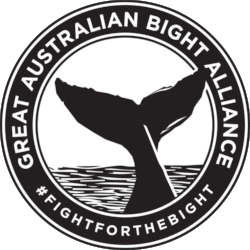Source: The New York Times
Surfers paddling out through the breakers at Bondi Beach in Sydney, Australia, on Sunday in protest against oil and gas drilling in the Great Australian Bight.
Credit: Anna Maria Antoinette D’Addario for The New York Times
SYDNEY, Australia — The “paddle out” is surfing’s most hallowed ritual, a floating memorial ceremony in which mourners join hands and reminisce at sea.
On Sunday, surfers paddled out from Australia’s most famous beach, but this time it was not to remember one of their own. Instead, they were calling attention to a stretch of rich, pristine ocean that they say faces a mortal threat from a plan to open it to natural gas and oil drilling.
The gathering, on Bondi Beach in Sydney, was part of a series of protests that have gathered force in recent weeks across Australia in an effort to protect the Great Australian Bight, a haven for some of the world’s most unusual marine life.
The proposal by the Norwegian company Equinor to drill in the waters off Australia’s southern coast has galvanized surfers, including generations of the sport’s most famous professionals here. Surfing holds great economic, social and cultural significance in Australia, which has some of the world’s most beautiful, unspoiled coastlines.
“Today is the day we draw a line in the sand,” said Damien Cole, a surfer who led the paddle out from Bondi’s shore. “We’re in the midst of a climate emergency, and here’s a company working with our federal government to go into one of the most remote and pristine ecosystems, risking everything.”
As federal elections approach on May 18, the Equinor proposal is becoming a test of whether Australia is more committed to extraction of natural resources or protection of unspoiled ecosystems, with beaches as a political forum.
Full story at The New York Times

